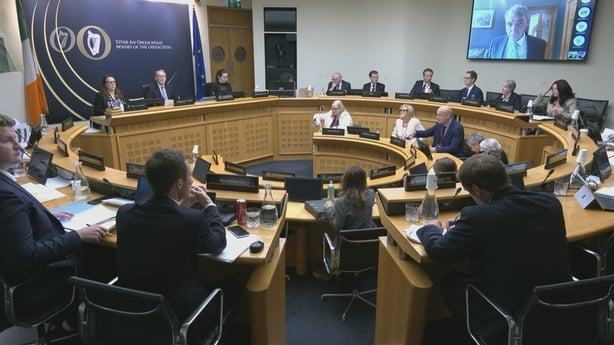It began with a startling statement about the under declaration of the earnings of a star broadcaster.
Now, more than a week into the RTÉ payment crisis, this story has grown to encompass many hours of Oireachtas committee hearings, tales of rock concerts and rugby matches and a situation where almost everyone in the country has heard of a barter account, even if they mightn't be able to explain exactly how it operates.
But as the country faces into a second weekend of reporting on the issue - and looks towards more Oireachtas hearings next week - another question has been raised, that of the funding for, and future of, public service broadcasting in Ireland.
RTÉ is a public service broadcaster and although commentary on this role tends to focus on its News and Current Affairs division, it also provides a range of other content that fulfils its public service remit, including arts coverage, Irish language programmes and coverage of issues such as climate change.
To be a public service broadcaster requires an element of public funding, but RTÉ is dual-funded, partly by licence fee and partly by commercial revenue.
As required by the Broadcasting Act, its public service activities operate at arm's length from its commercial activities.
A situation outlined by Robert Shortt, the staff representative on the RTÉ Board who, after listening to tales at the PAC of client entertainment, including dinners out and concert tickets, commented dryly that the only perk received by staff was a free copy of the RTÉ Guide, although they can be thin on the ground at Christmas.
The RTÉ Board is a body made up of 12 people that makes policy for the broadcaster, while the Executive Board is a committee composed of senior management responsible for its day-to-day running.

The commercial wing of RTÉ operates a barter account, described as a 'slush fund' at the PAC.
More than €1m flowed through that account over a ten-year period and it was used for corporate entertainment, including trips to a football match, a rock concert and the 2019 Rugby World Cup in Japan.
This account is now being scrutinised by politicians attempting to get to the bottom of the understated payments.
In the wider business world, the existence of such an account, and indeed the practice of corporate entertainment, may not raise eyebrows in a purely commercial media body. But RTÉ is not purely commercial.
The inquiry into payments to Ryan Tubridy has now been expanded into a much wider inquiry into financial affairs and the corporate culture at RTÉ.
However, RTÉ as it currently stands can't simply get rid of its commercial wing, because without it, it wouldn't have enough funding to survive.
In fact, in recent years RTÉ has consistently said it is in financial difficulty, describing the licence fee structure as not "fit for purpose".
The licence fee system was of course designed for a time when most households watched one television set and paid a fee for the entertainment it provided.
These days, an average evening in an Irish household could see all members of a family watching individual screens, none of them showing a traditional 'RTÉ programme' and therefore not requiring a licence but some showing RTÉ-generated content whether streamed or online.

Last year, the Future of Media Commission recommended that the licence fee be replaced with Exchequer funding, but that was rejected by Government, which said it wanted to "minimise the risk of actual or perceived political interference in media independence".
The subject of funding for RTÉ was then put under review, but that review has now been paused due to the current crisis.
However, if RTÉ does not receive the funding it says it needs to properly function it will be forced to lean even heavier on its commercial division.
Speaking on RTÉ Radio News at One on Friday, Professor Jane Suiter of DCU described public service media as crucial for a well-functioning democracy, and said that research shows that where public service media is weak, the state of democracy is weak.
The case has also been made that a strong public broadcaster is necessary in an era where fake news and disinformation is seen as a threat to democratic procedures including elections.
The events of the past week have greatly damaged public trust in RTÉ and there is little public appetite now to be seen to increase or shore up its funding.
But if legislators want public service broadcasting to survive, the question they now face is how to fund it, and indeed what form the service should take in the future.
We need your consent to load this rte-player contentWe use rte-player to manage extra content that can set cookies on your device and collect data about your activity. Please review their details and accept them to load the content.Manage Preferences







